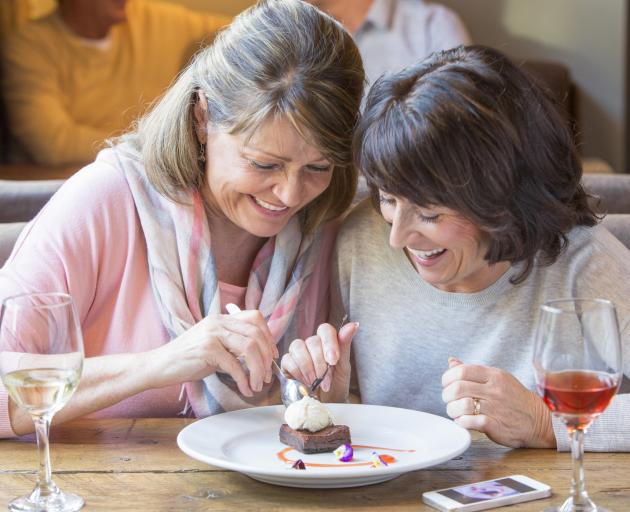
Plenty of social gatherings and functions leading up to the big event of a hot roast turkey, ham on the bone and all the trimmings can make it difficult to resist temptations and then feel comfortable wearing less clothing in warmer days.

Avoiding social situations is not the answer; socialisation is important for our mental wellbeing. People get busy with their everyday lives during the year, so it is nice to celebrate the end of another year with friends and colleagues.
Pot-luck dinners are great - perhaps try a new recipe for a healthy salad you know you can enjoy. Google recipes with ''whole food'', ''plant-based'' or ''paleo'' in the keywords to give you healthy, nourishing options.
This is a good opportunity to try a new, healthy recipe you can be proud of.
Asparagus is a great addition to barbecues. Colourful fruit threaded on to a stick also make for a nice dessert.
Not eating the day of a social function in order to ''conserve calories'' is not a great option. Try to eat breakfast and lunch, or a brunch, even if it is lighter than usual, and possibly even have a healthy snack before you go out.
This might include a boiled egg or a small handful of raw almonds as you get ready. Hold off a can of tuna in this situation!
Keep up your water intake during your day - this can help to determine if you really are hungry or just dehydrated.
If you are having alcohol, some water is advisable, especially if you want to avoid any embarrassing situations in front of workmates. Having fat with alcohol - olives, nuts or the likes of salmon canapes - will all help to slow the absorption.
If you are at a restaurant and everybody is ordering entrees, you could choose a salad-based entree or go without. The gap between eating your entree and main can give your receptors time to get the message you are satisfied already, so often you don't even need to follow with more food. But we do anyway.
Sharing a dessert is another good option.
Just remember, it is not what you do some of the time, but most of the time.
Here are some daily habits that might help you to survive the silly season:
• Set your alarm for one hour earlier than usual. Initially, the snooze button will lure you to stay in your warm bed but the reward of getting up will pay off after a few days. Try to do all your chores and exercise at the start of the day and be in bed earlier, to work more with the circadian rhythm and to support hormonal health Hal Elrod's book The Morning Miracle is a great read if you need more convincing.
• Artemis Liver Detox Tea is a great option - one cup on rising each day for a month, at least twice a year. This is a gentle, Swiss-formulated herbal blend to support your digestive function while consuming rich foods or alcohol. If you are on medications, talk to a pharmacist or naturopath first about the correct timing for you.
• Consider taking a good quality multivitamin and mineral supplement. Our soils are depleted of some key nutrients, so this is a good way to improve your nutritional status.
• Try to get as much physical movement into your day as possible - we don't always want to hear it but yes, the stairs are a better option. Parking further away from the supermarket entrance will not only benefit you physically, but it may save your car from accidental damage from stressed drivers.
• The likes of a Fitbit or Apple watch can be great tools for keeping you accountable, so Santa may need a hint.
• Get out in nature. We have so many beautiful gardens, parks, beaches and other public areas across Otago so make the most of them, when possible. A beach walk after work is so refreshing, as is just leaving the office to sit in the sunshine to have your lunch.
• Meditation in the evening, with dim lighting before bed is a nice way to initiate the sleep response. Headspace is a great app for this. A good quality sleep will make all the difference to your coping mechanisms.
- Dee Copland is a Dunedin naturopath and nutritionist. The advice contained in this column is not intended to be a substitute for direct, personalised advice from a health professional.












